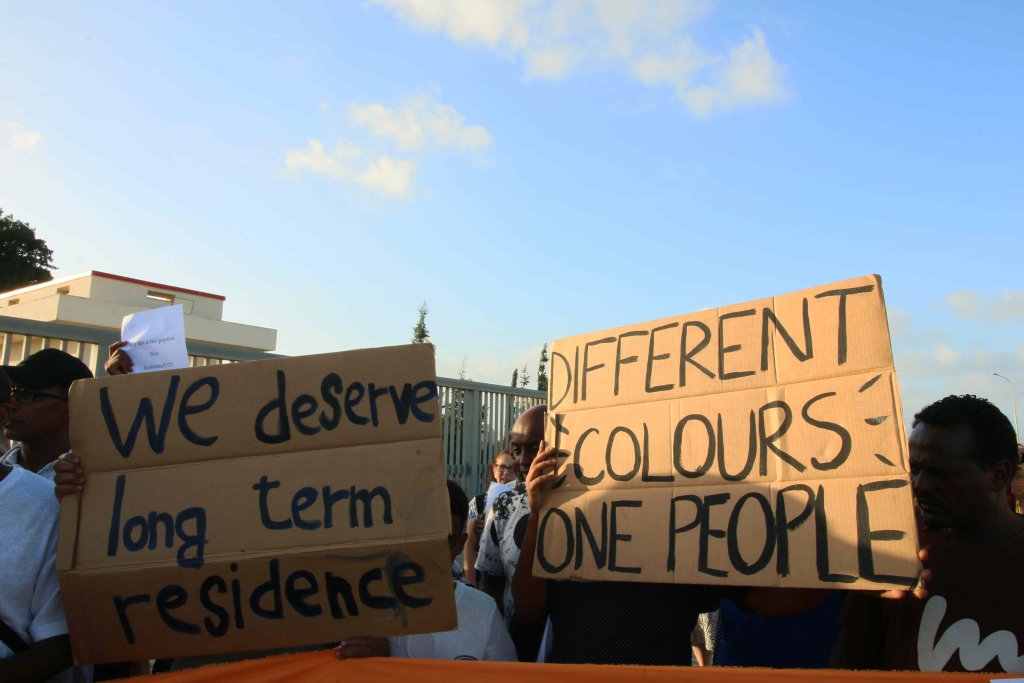A person who employs one of the five Ethiopians who are currently being held in a detention centre is asking for his release.
This was recounted by Migrant Commission Director Fr Anton D’Amato during the programme Andrew Azzopardi on RTK103 where he explained that one of the persons being detained is of significant importance to a Maltese business.
He added that the Ethiopian community in Malta is made up of about 700 people and was shocked by the arbitrary arrest of five members of their community. Many now fear that they will also face arbitrary arrest and deportation, despite having lived, worked and integrated in Maltese society over the course of almost 20 years.
The presenter, Professor Andrew Azzopardi, mentioned how the Ethiopians can be referred to as ‘Ethiopian Maltese’ in the same way that we refer to Maltese people who went to Australia as ‘Maltese Australians’.
The Director of the Migrant Commission mentioned how the children of those facing deportation are facing a situation where their friends at school are asking them whether they will be sent to Ethiopia – a country which they do not know, since they were born and raised in Malta.
Fr D’Amato asked how the arbitrary detentions and deportations will solve any of the country’s problems.
“You can’t say that you’re taking half a million people and that removing them will solve the country’s traffic, drainage or electricity problems! No, we are taking five people, placing them in a detention centre at the Government’s expense. Instead of earning money and paying taxes, they are now being provided for by taxes, to then be sent to Ethiopia by plane. Then, we tell them: “If you want to come, apply,”” he said.
Professor Andrew Azzopardi added that an employer of one of five being detained told Newsbook Malta that he had already made this application, but it was never approved.
“What are we trying to achieve?” asked Fr D’Amato.
“We are living in a capitalist Malta”
Fr D’Amato continued by saying that today’s Malta is a capitalist society and that this is a system based on money and continuously expanding production and consumption. If this does not happen, then the system collapses. It is for this reason, that Malta is importing so many workers from abroad.
“Often, workers are finding that they are not adapted to the work they end up doing,” he said. He explained that many workers who are brought from abroad are promised jobs that they already have training for. However, when they arrive, they often end up working in different jobs. This is done so that the economy can keep on growing at a fast rate.
Since employers only care about the short-term profit, they generally do not invest in training for their workers.
“Now is the time to make money. We worry about other things later,” said D’Amato summarising the attitude that has invaded the country.
He also quoted Minister for Finance Clyde Caruana who had said that in the coming years, Malta’s population will reach 600,000 people, and that if we continue expanding the economy at the current rate, we will reach 800,000 people – double what Malta’s population was ten years ago.
“Migrants have a double vulnerability”
“Migrants always suffer from a double vulnerability,” said Fr D’Amato. He explained that if a Maltese person has a health issue and stops working, Maltese people are often also homeowners. If a migrant has a health problem and stops working, however, they can end up on the street because they may not have enough money to pay rent.
Why do we have a Migrants’ Commission?
Professor Andrew Azzopardi asked what the reason behind the commission that Fr D’Amato leads is. Fr D’Amato explained that the commission was founded after experiencing the situation after the Second World War, when many Maltese left Malta to create a future elsewhere. This continued for a number of decades. Towards the end of the 80s, the first migrants began to arrive in Malta by boat. These were often Albanians, Iraqis and other nationalities. From 2000, migrants started to arrive from Tunisia and Libya.
As a result, the name Migrants’ Commission was chosen to incorporate the realities faced by both immigrants and emigrants.
Source: Newsbook.com.mt





